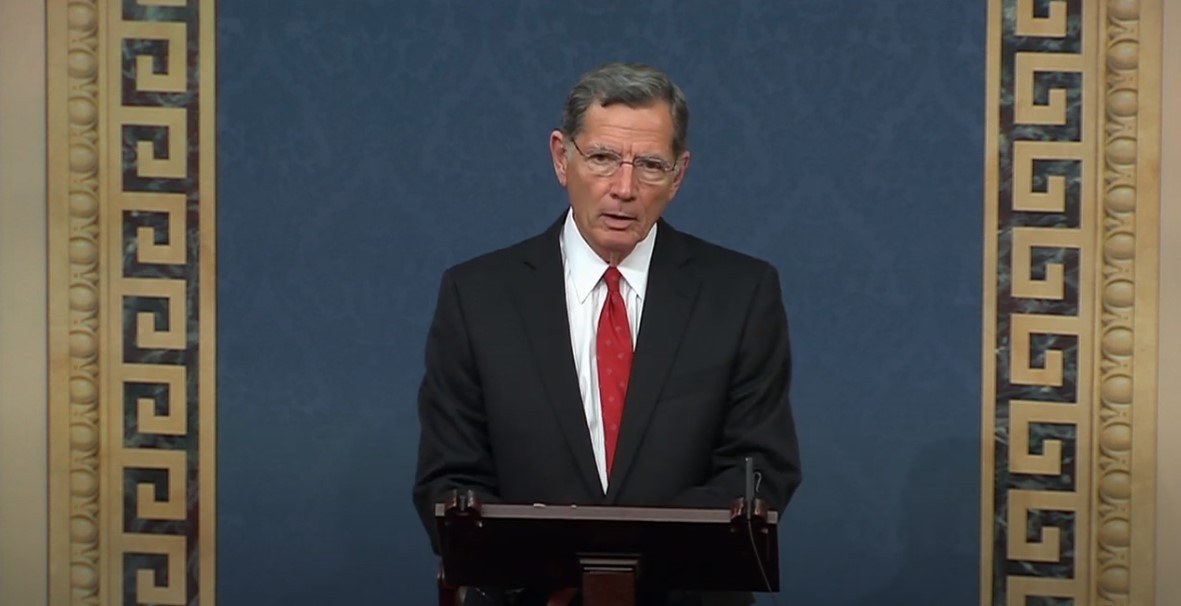News
Senator Barrasso and Colleagues Push Biden Administration to Address Rural Nursing Home Staffing Shortages

U.S. Senators John Barrasso (R-Wyo.), Jon Tester (D-Mont.), Steve Daines (R-Mont.), John Hickenlooper (D-Colo.), and colleagues, sent a letter Friday to Centers for Medicare & Medicaid Services (CMS) Administrator Chiquita Brooks-LaSure expressing concerns about CMS’ intent to issue additional staffing mandates for nursing homes.
In the letter, the senators discourage CMS from taking a “one-size-fits-all” approach and instead address the significant workforce shortages affecting rural America. The letter was also signed by Senators John Thune (R-S.D.), Gary Peters (D-Mich.), Kevin Cramer (R-N.D.), Joe Manchin (D-W.Va.), Deb Fischer (R-Neb.), Kyrsten Sinema (D-Ariz.), John Hoeven (R-N.D.), Cynthia Lummis (R-Wyo.), and Mike Rounds (R-S.D.). Text of the letter in its entirety can be viewed below.
Dear Administrator Brooks-LaSure,
We write to express our concerns regarding the Centers for Medicare and Medicaid Services’ (CMS) intent to issue staffing mandates for nursing homes.
Like you, we understand the importance of ensuring beneficiaries of federal health care programs have access to safe and high-quality nursing care. However, we fear a one-size-fits-all staffing mandate would undermine access to care for patients, particularly in rural communities. Instead, we urge you to work with Congress and rural stakeholders on tailored solutions that address the severe workforce challenges in our states’ underserved areas.
While we support evidence-based policies to improve beneficiary care in nursing homes, staffing mandates are not the only solution. First, sweeping staffing mandates do not account for individual facilities’ operational capabilities and local workforce conditions. For example, minimum staffing standards that establish strict staff-to-patient ratios and/or minimum hours per resident day requirements may not reflect optimal staffing levels given differences in patients’ needs and underlying conditions, as well as the skills of the personnel at-hand.
Additionally, blanket staffing standards may not provide enough flexibility to nursing homes in light of well-known and long-standing obstacles to the recruitment and retention of direct care workers, especially in rural and underserved areas. This challenge is exacerbated by the fact that the health care sector is projected to have a shortage of nurses (10 to 20% based on a spring 2022 estimate) in the coming years.
Finally, meeting staffing mandates will place nursing homes in financial jeopardy. This could lead to the shuttering of facilities, especially in rural communities. There is no question such a scenario would only amount to a counterproductive regulatory environment that leaves vulnerable patients and their families with far less access to care.
Going forward, we recognize CMS as a crucial partner in identifying, mitigating, and preventing future health and safety problems in nursing homes. We stand ready to work with your agency on proposals to improve long-term care for patients. The best way to accomplish this goal is working with Congress and stakeholders to ensure any future actions do not further exacerbate the serious challenges already facing facilities in rural America.

